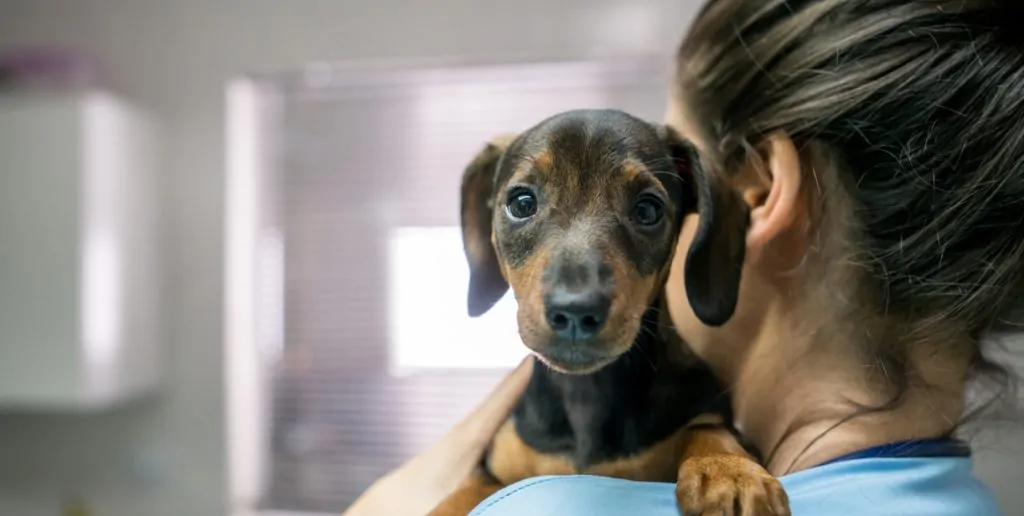
How to Help Your Pet Stress Less at theVet
Pet owners often notice that their pet is stressed during veterinary visits. Cats show stress with hissing, growling, tense crouching, and even vomiting or diarrhea. Even when they return home, disgruntled kitties may continue to exhibit stressed behaviors like refusing food and water or becoming withdrawn until they decide to forgive you. Stressed puppies may exhibit negative behaviors during vet trips such as pacing, whining, barking, or spontaneously relieving themselves but are usually ready to forgive and forget once they get home.
Regular veterinary visits allow vets to establish your pet's baseline so it is easier to identify any changes in their health. Early detection makes it possible for vets to treat health issues in the early stages and prescribe medications and lifestyle changes for chronic conditions before they become acute. Skipping the vet is not an option but there are ways to take the stress out of your pet's trips to the vet.
Vet Trip Tips for a Calm Kitty
Most cat owners agree that using the right carrier in the right way is critical keeping your kitty calm at the vet. However, that is often dependant on your cat's temperament. With trial and error, most cat parents find that one or more of the following vet tips work for them:
- The Right Kind of Carrier. From hard plastic carriers to soft-sided totes and backpacks, the ideal carrier is strong, lightweight, waterproof, and has a large opening for easy access.
- Cat Carrier Training. Leave your cat's carrier in a spot at home where they like to hang out with some comfy bedding and a favorite toy.
- Joyrides. Gradually acclimate your kitty to the car with short jaunts, first with the crate closed, then later with it open, and don't forget the treats.
- Pheromones. Pheromones relax your cat and should be sprayed in their crate, in your car, and in the exam room if allowed.
- Waiting Room Strategies. The best vet tip for surviving the waiting room with your cat is to keep them crated with a towel draped over the peepholes to reduce over-stimulation.
- Tolerance Training. Cats should be trained to tolerate handling while young. Practice by holding them and picking them up frequently, encourage your friends to do the same.
- Rewards. Bring treats to the veterinary office to reward your cat for their cooperation.
Vet Trip Tips for a Polite Puppy
If you have given up on your dreams of a shenanigan-free veterinary visit with your pup, there is hope. The best vet tip for your puppy is to make their veterinary visit fun. Here's how:
- Socialization. Social skills are important to puppy training and should be encouraged with regular trips to parks with other dogs and people.
- Joyrides. Take your pup for car rides to do fun things so that car rides have pleasant associations.
- Teach Simple Commands. Puppy training that includes common commands like "Sit," "No," and "Stop" helps control stressed behaviors.
- Play Doctor. Improve your pup's tolerance to being handled by having pretend examinations where you get your dog to lie down while you peek in their mouth and ears and check their paws.
- Rewards. Withhold food for a few hours before going to the vet so your puppy is more interested in treats as rewards for positive behaviors.
- Soothing Touch. Keep your pup close in the waiting room with a comforting hand stroking their fur to keep them calm.
- Good Vibes. If you are stressed, your puppy will pick up on those vibes. Approach your next veterinary visit with the same upbeat attitude that you take towards a trip to the park.
Your Vet Will Thank You
While your vet has their own methods for managing stressed pets, you can set your pet up for success at the vet with a little training and preparation beforehand. Relaxed and well-behaved pets allow vets to perform more thorough examinations and reduce risk of injury to your pet and your vet during medical treatments.
